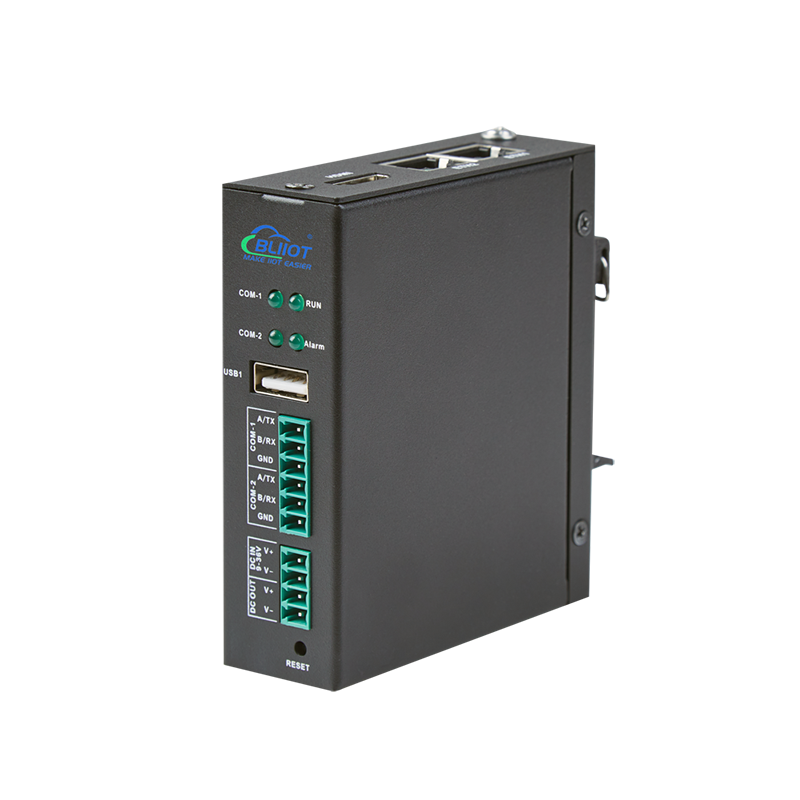What is the Difference Between X86 Architecture IPC and ARM IPC?
Views : 10332
Author : Jeakie
Update time : 2023-03-07 16:40:39
What is the difference between X86 architecture IPC and ARM IPC?
Performance:
After more than 30 years of development, the industrial control computer with X86 architecture is much better than the ARM platform in terms of performance and production technology. The advantage of ARM is not its strong performance, but its efficiency.
ARM uses RISC instruction set, which is at a disadvantage in completing comprehensive work, but in some applications with relatively fixed tasks, its advantages will be fully displayed.
Extensibility:
The X86 architecture is connected to the expansion device in the form of a bridge. Especially after years of development and accumulation, its expansion convenience, stability and cost control are very good.
ARM connects the CPU with data storage and other peripherals through a dedicated data interface, which is usually fixed at the time of design and difficult to expand later. Therefore, adopting ARM architecture, we basically adhere to the principle of enough.
System compatibility:
The alliance between X86 architecture and Microsoft has monopolized the personal computer operating system for nearly 30 years, forming a huge user group, and also deeply solidified the usage habits of many users. At the same time, the development of its hardware and software has gradually formed a unified standard. Under this combined platform, some development tools are becoming increasingly popular, so the compatibility based on X86 architecture is also unparalleled.
Almost all ARM architectures use Linux operating system, and almost all hardware needs to build operating system separately, which is incompatible with other systems, which undoubtedly restricts its development and application. Until the Android system released by Google later, it provided strong support for ARM architecture in terms of application market unification.
Development and application:
The system of software development and porting X86 architecture has been launched for too long, and users' applications, development tools and supporting compatibility work have reached a very mature level, so more and cheaper software development tools and third-party applications can be found on this platform. It greatly reduces the development cost and cycle in the early stage.
However, due to the constraints of its hardware, system and compatibility, ARM is much more than the X86.
Power consumption:
Because the development ideas of the two are different, X86 is to meet various applications and fields as much as possible. So it has always advocated performance and speed. Of course, based on energy efficiency balance, its power consumption cannot be low, although it is far from ARM. But over the years, Intel has been committed to the research of high performance and low power consumption, and has also achieved good results.
In general, the X86 is more comprehensive, while ARM has more advantages in power consumption, so it is better to choose ARM if the production equipment is powered on 24 hours.

Performance:
After more than 30 years of development, the industrial control computer with X86 architecture is much better than the ARM platform in terms of performance and production technology. The advantage of ARM is not its strong performance, but its efficiency.
ARM uses RISC instruction set, which is at a disadvantage in completing comprehensive work, but in some applications with relatively fixed tasks, its advantages will be fully displayed.
Extensibility:
The X86 architecture is connected to the expansion device in the form of a bridge. Especially after years of development and accumulation, its expansion convenience, stability and cost control are very good.
ARM connects the CPU with data storage and other peripherals through a dedicated data interface, which is usually fixed at the time of design and difficult to expand later. Therefore, adopting ARM architecture, we basically adhere to the principle of enough.
System compatibility:
The alliance between X86 architecture and Microsoft has monopolized the personal computer operating system for nearly 30 years, forming a huge user group, and also deeply solidified the usage habits of many users. At the same time, the development of its hardware and software has gradually formed a unified standard. Under this combined platform, some development tools are becoming increasingly popular, so the compatibility based on X86 architecture is also unparalleled.
Almost all ARM architectures use Linux operating system, and almost all hardware needs to build operating system separately, which is incompatible with other systems, which undoubtedly restricts its development and application. Until the Android system released by Google later, it provided strong support for ARM architecture in terms of application market unification.
Development and application:
The system of software development and porting X86 architecture has been launched for too long, and users' applications, development tools and supporting compatibility work have reached a very mature level, so more and cheaper software development tools and third-party applications can be found on this platform. It greatly reduces the development cost and cycle in the early stage.
However, due to the constraints of its hardware, system and compatibility, ARM is much more than the X86.
Power consumption:
Because the development ideas of the two are different, X86 is to meet various applications and fields as much as possible. So it has always advocated performance and speed. Of course, based on energy efficiency balance, its power consumption cannot be low, although it is far from ARM. But over the years, Intel has been committed to the research of high performance and low power consumption, and has also achieved good results.
In general, the X86 is more comprehensive, while ARM has more advantages in power consumption, so it is better to choose ARM if the production equipment is powered on 24 hours.
Embedded ARM Edge Computer EdgeCom BL301

Related News
Read More >>















